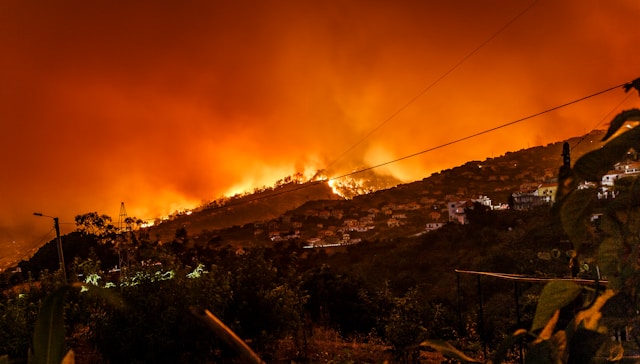
Carbon: The next big cash crop?
Not only does the US emit a sixth of global CO2 emissions from within its borders, but a 2019 report found that US agriculture emitted 698 million metric tons of carbon-dioxide equivalent in 2018. Could carbon credits help?

Progress: Biden pledged to invest $2 trillion in clean energy and green infrastructure over the next four years, charting the US on course for a carbon-free electric grid by 2035. The new administration has taken a clear stance that reducing US carbon dioxide (CO2) emissions is inextricably linked to combating climate change. Not only does the US emit a sixth of global CO2 emissions from within its borders, but a 2019 report found that US agriculture emitted 698 million metric tons of carbon-dioxide equivalent in 2018. With this in mind, private companies and organizations have built new trading systems that verify farmers for ecosystem services they have carried - or promise to carry out. This generates “carbon credits,” which are then sold to buyers looking to reduce their environmental footprint.
- Lawmakers have realized that as stewards of our nation’s land, farmers have a unique opportunity to cut emissions by incorporating sustainable techniques - e.g., reducing tillage, planting cover crops, and grazing livestock in managed systems. While Biden outlined his plan to decarbonize agriculture and create a federal “carbon bank,” a group of bipartisan lawmakers proposed The Growing Climate Solutions Act in June of 2020. The bill would create a third-party verifier certification program at the USDA to make participation in carbon markets easier for farmers and ranchers.
As ecosystem service markets become a prominent policy recommendation for accelerating the transition from conventional to regenerative agriculture, organizations across the US are scaling carbon markets tailored to the farming sector:
- Last year, Boston-based Indigo Agriculture announced The Terraton Initiative, an effort to draw down 1 trillion tons of CO2 back into the soil. To achieve this goal, the company launched Indigo Carbon, a voluntary carbon marketplace for farmers.
- In Houston, the Soil Value Exchange has steered ranchers towards carbon sequestration practices, with buyers of credits lining up including Shopify.
- Over in Seattle, Nori is working with 50+ farming projects and 200,000+ acres of farmland to refine a less costly carbon market based on blockchain technology.
- And in May of 2019, The Soil Health Institute’s Ecosystem Services Market Consortium, a national-scale ecosystem services market for agriculture, launched with widespread industry involvement and a targeted 2022 market launch.
Amidst the buzz about the potential for carbon farming to mitigate climate change and revitalize rural communities, critics warn that the measurement tools are not accurate enough and that carbon credits could lead to greenwashing - the corporate practice of making diverting sustainability claims to cover a contentious environmental history. Many of the most outspoken proponents of carbon markets are large agribusinesses and corporations - Delta, McDonald’s, and General Motors - who could buy credits to bypass reducing their own emissions. While it is too soon to tell if commodifying pollution is an effective way of reversing climate change, it is a necessary shift towards incentives that align soil health with planetary health.
Read: In Defending Beef, Nicolette Hahn Niman - an environmental lawyer and vegetarian rancher - makes the case that, whatever the future food system looks like, cattle can and must be part of the solution. Separate from feedlot farming, Nicolette presents a case for why foods derived from cattle raised on grass are nutritious and invaluable to grassland ecosystems. Properly grazed livestock play a critical role in preserving prairies by acting as a stand-in for herds of wild ruminants that once spanned the globe. Overall, Defending Beef is a must-read for anyone concerned about the “foodprint” of their agricultural and dietary choices.
Shop: Have you been looking for a way to reduce the carbon footprint of your holiday shopping on Cyber Monday? Look no further than EcoCart.io, a Chrome extension that makes fighting climate change simple and cost-effective. Every time you shop at one of EcoCart’s 10,000+ partner stores, the company automatically offsets the environmental impact of your order at no additional cost. EcoCart donates to carefully vetted, ethically proven, and scientifically verified carbon offsetting projects that comply with the world’s major carbon standards. And for this week only, EcoCart has pledged to plant a tree every time one of our subscribers installs the browser plugin. So install EcoCart here, share the offer with your friends, and start shopping sustainably today!

Subscribe to The Regeneration
The regeneration is a fresh serving of regenerative food and agriculture news, delivered to your inbox every week.






